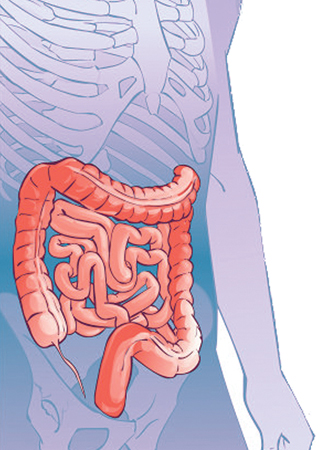By Dr. Jun R. Ruiz
MARCH is Colorectal Cancer Awareness Month. This is an important campaign as colorectal cancer (CRC) is the third most common cancer among Filipinos. Only breast and lung cancers are more prevalent in the Philippines.

This cancer is preventable, treatable, and beatable. CRC screening can save lives, but not that many people are being screened. As an advocate, I believe that we should continue to educate the general public and mobilize the health community to beat colorectal cancer.
The implementation of two legislative acts, namely the Universal Health Care Law and the National Integrated Cancer Control Act, last year is a defining moment in the Philippine health landscape, and a victory for the Filipino patient. The latter law emphasizes cancer prevention and improvement of cancer survivorship by strengthening essential programs for the entire cancer care continuum. Screening that is currently not covered under PhilHealth and HMOs will be included in the package. It aims to make cancer services and care more accessible to all Filipinos.
The new law also aims to expand PhilHealth packages for Filipinos diagnosed with cancer and mandates the establishment of the Philippine Cancer Center to ensure access to cancer care services and medicines. This new development in cancer care is in line with the objectives of the Augusto P. Sarmiento Cancer Institute (APSCI) of The Medical City to be the world standard in compassionate cancer care. The Cancer Assistance Fund shall also be created to complement the implementation of the Universal Health Care Act.
RISK FACTORS FOR COLORECTAL CANCER
Almost all of these cancers start as abnormal growths in the lining of the colon and rectum called polyps. These polyps grow slowly and take around 10 years for some to develop into cancer. Not all polyps progress to cancer. The removal of these polyps reduces the risk of developing cancer.
These polyps and occasionally early cancer do not cause complaints like rectal bleeding, constipation, and abdominal pain that are experienced by patients in later stages of cancer.
The common individual-specific factors that increase risk for cancer in the colon and rectum are:
1. age greater than 50
2. personal history of colorectal cancer or advanced polyps
3. family history of cancer in the colon and rectum
Being over 50 is the most common risk factor for this cancer, as 90% of these cancers occur after the age of 50. A family history of a first-degree relative with CRC increases the risk two to three-fold.
There are also lifestyle habits that can be modified that likely contribute to the formation of this cancer: cigarette smoking; alcohol consumption; obesity; and a diet that has high saturated fat, low fiber, and high red meat consumption
Living a healthy lifestyle by avoiding smoking, not consuming excessive alcohol, engaging in regular exercise, and eating the right food can lower your risk for cancer in the colon and rectum.
BE SCREENED
In several countries, CRC screening is recommended for people starting at the age of 50. Screening at an earlier age, usually at 40, is advocated for first-degree relatives of patients with colorectal cancer, and in those with other additional risk factors.
The gold standard for CRC screening is a colonoscopy as it can detect and remove early lesions like polyps. The procedure involves a flexible fiberoptic scope with a camera that is inserted through the rectum and is carefully advanced to visualize the colon under mild anesthesia. However, it is an invasive test and it has the (low) potential to cause complications.
Some patients may not want to have an invasive test or may find the cost of a colonoscopy too expensive. A stool test called the Fecal Immunochemical test (FIT) is a good screening alternative. FIT detects only human blood and is specific for bleeding in the colon. The test is repeated every year if the initial test is negative. If the test is positive, a colonoscopy is needed to rule out the presence of cancer. With the right organization, a population-based screening program among Filipinos involving this method will result in early diagnosis of colorectal cancer and improved clinical outcomes in the country.
As a gastroenterologist in the clinic who advocates CRC screening, I recommend a screening colonoscopy in persons between 50 to 75 years of age who are healthy and in whom the complications are low. If the patient does not want to start with a colonoscopy, I suggest starting with FIT. After a discussion with his physician, the patient can choose his preferred screening test. After all, the best test is the one that gets done.
By undergoing either method of CRC screening, this would be one step towards beating colorectal cancer.
Dr. Jun R. Ruiz is a Diplomate of the American Board of Internal Medicine in Gastroenterology, and the Head of the Colorectal Cancer Screening Program of The Medical City in Pasig, Metro-Manila. He finished his Gastroenterology fellowship at the George Washington University in Washington D.C. He is the first Filipino chapter author of the best-selling medical reference The Merck Manual.



